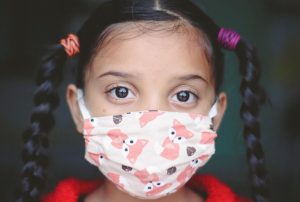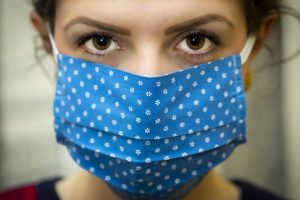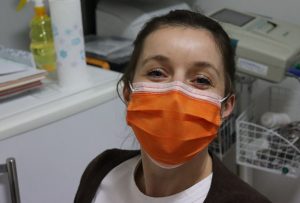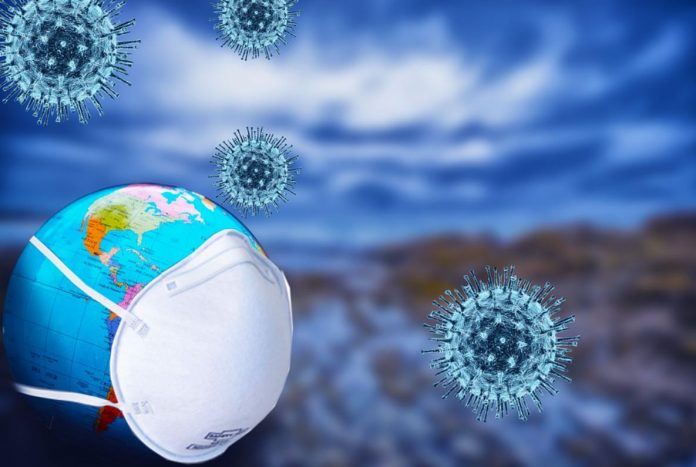Table of Contents
Latest Research updates on COVID-19 Symptoms
 The pandemic had been havoc in the lives of people but what was truly inspiring is to see researchers around the world coming up with innovative ways to help citizens beat COVID-19. Amidst the chaos in the world, researchers are keeping their calm, updating people regarding all the latest COVID symptoms and their treatments. An appropriate example will be COVID Symptom’s smartphone-based app downloaded millions of times, mostly in the United Kingdom and the United States.
The pandemic had been havoc in the lives of people but what was truly inspiring is to see researchers around the world coming up with innovative ways to help citizens beat COVID-19. Amidst the chaos in the world, researchers are keeping their calm, updating people regarding all the latest COVID symptoms and their treatments. An appropriate example will be COVID Symptom’s smartphone-based app downloaded millions of times, mostly in the United Kingdom and the United States.
Due to them, we know exactly what action we should take in various circumstances during the pandemic. They are working tirelessly to find ways for better treatment to understand and eliminate the illness. People are getting updated with all the latest observations and discoveries.
Here are some of the latest updates that we have heard regarding COVID symptoms:
1. The youngest COVID-19 Patients, if treated with care, will most likely avoid severe illness
 Infants less than 3 years olds who get infected with COVID-19 experience mild to moderate cases. They usually get easily recovered with some supportive care. Since these little ones are still developing immune systems, they must not contact caretakers or other people. Tiny patients tend to be more vulnerable to the virus as compared with older infants and young children.
Infants less than 3 years olds who get infected with COVID-19 experience mild to moderate cases. They usually get easily recovered with some supportive care. Since these little ones are still developing immune systems, they must not contact caretakers or other people. Tiny patients tend to be more vulnerable to the virus as compared with older infants and young children.
2. Aging Disease may block Coronavirus infection
It is suspected when Progeria, a premature ageing disease, links with an enzyme, it can defend against viruses including SARS-COV-2, which causes COVID-19. This enzyme is called membrane-associated zinc metalloprotease ZMPSTE24, and the laboratory of Susan Michaelis discovered it. She has spent several decades studying enzymes and their effect on a protein called lamin A.
3. Dialysis Patients at Greater risk of coronavirus infection
SARS-COV-2 virus is rapidly spreading among residents in nursing homes and other long term facilities. Unfortunately, this is leading to a high number of deaths in a very vulnerable population.
is rapidly spreading among residents in nursing homes and other long term facilities. Unfortunately, this is leading to a high number of deaths in a very vulnerable population.
According to the new study led by researchers at Johns Hopkins Medicine, patients receiving haemodialysis for chronic kidney diseases might be at higher risk for the pandemic virus.
4. Third COVID vaccine slot for immunocompromised Americans (13th August, 2021)
According to the Centers for Disease Control and Prevention, people with severely weakened immune systems must receive a third dose of the vaccine. In a statement, CDC Director even stated, “This official CDC recommendation – which follows FDA’s decision to amend the emergency use authorizations of the vaccines – is an important step in ensuring everyone, including those most vulnerable to COVID-19, can get as much protection as possible from COVID-19 vaccination,”The Food and Drug Administration had made up its mind to allow immunocompromised people to get extra shots. However, they left it up to the CDC regarding who should be getting the additional doses.
5. Coronavirus might be an endemic: Dr Scott Gottlieb
 After the recent surge in delta cases, Dr Scott Gottlieb commented to CNBC that the virus would become endemic. However, he has also mentioned, “Hopefully we’ll be on the other side of it or coming on the other side of it sometime in November, and we won’t see a big surge of infection after this on the other side of this delta wave”.
After the recent surge in delta cases, Dr Scott Gottlieb commented to CNBC that the virus would become endemic. However, he has also mentioned, “Hopefully we’ll be on the other side of it or coming on the other side of it sometime in November, and we won’t see a big surge of infection after this on the other side of this delta wave”.
Through a unanimous vote, CDC recommended booster shots from its Advisory Committee on Immunization Practices.
The Smithsonian Science Education centre launches new COVID-19 Guide for Youth with the support of the World Health Organization (21 May 2020
A new rapid-response guide has been launched for the youth ages between 8-17. The guide is based on the UN Sustainable Development Goals. Young people need to understand the social science and science behind COVID-19. When they have proper knowledge of the symptoms and why everything happens, it will help them take the right actions for themselves and others.
There will be a set of seven cohesive student led-tasks. In addition, participants will engage in activities to give answers to questions previously defined by their peers.
The guide further will include activities, research, quotes from scientists, public health officials.
6. Vaccines reduce the severity of the symptoms of the virus
Even after being vaccinated, if people contact COVID-19, they will experience milder symptoms than unvaccinated individuals. The mRNA preventives have done this research in the US. COVID vaccines are proving to be highly effective in preventing infection. After being vaccinated, about 90% of the time, you will not be affected by the virus. Even though you get it, there will be much less viruses in you.
7. Study shows vomiting and diarrhoea can be COVID symptoms
Symptoms like vomiting and diarrhoea should not be taken lightly since they can also be symptoms of COVID-19. A recent study conducted by SMS Hospital doctors showed that there were gastrointestinal manifestations in some patients and they showed no symptoms of respiratory problems.
As per the study in ‘Hepatic and gastrointestinal manifestation of COVID-19”, “Patients may visit gastroenterologists with diarrhoea and vomiting. Doctors need to test such at-risk subjects with gas.
8. Does Vitamins supplement Really Helps as COVID prevention?
 We might think that taking supplements and vitamins helps us maintain a healthy immune system. Of course, plenty of people were taking it to beat the pandemic, but that might not be a good idea.
We might think that taking supplements and vitamins helps us maintain a healthy immune system. Of course, plenty of people were taking it to beat the pandemic, but that might not be a good idea.
Indeed, nutrients like vitamin D are essential for our immune system, but will supplement can really help get rid of COVID-19?
As per Dr.ChristinaMenni, “We found that multivitamins, vitamin D, omega-3, and probiotic supplements all had a small protective effect against testing positive for the virus,” she says. “By contrast, we saw no protective effect at all for the other supplements we looked at like vitamin C, garlic, and zinc.”
She saw an interesting pattern when she broke down her result according to gender. Here is what she found – “We found that multivitamins, vitamin D, omega 3, and probiotic supplements all modestly helped protect women, but we didn’t see the same consistent protective effect for men. That was a surprising result,”
Spending your money on supplements over the hope of trying to about COVID-19 will do you no good. Instead, consider getting a healthy diet with diverse fresh vegetables and fruits.
9. Who is most likely to face long COVID?
According to the latest analysis data o COVID Symptom Study App, ZOE, one in 20 people are likely to suffer from COVID 19 symptoms. People will face the symptoms for more than 8 weeks. Although this can happen in people of all ages, researchers discovered that older people are much more likely to get long COVID. It affects around 10% of 18-49 years old who have suffered from COVID-19, rising to 22% of over 70s. Weights also play a key role in having longer COVID. People who have asthmas are also more likely to experience long COVID-19.
SUMMING UP,
Researchers are constantly studying the virus to make people aware of their latest discoveries. Their aim is to get all the information to people as soon as possible to take proper actions regarding them. Thus, they are working day and night to free us from this pandemic and so that we can live our lives normally once again.


